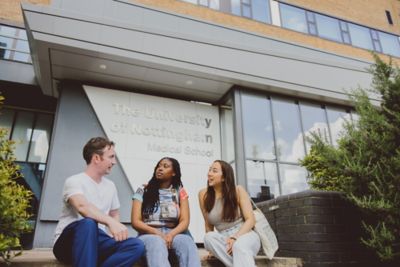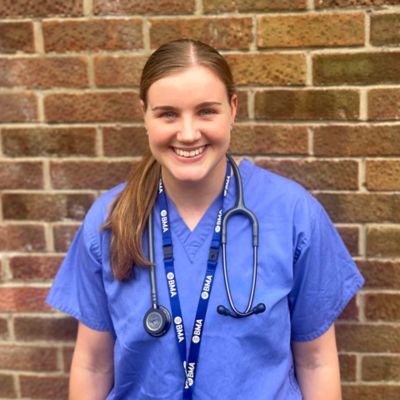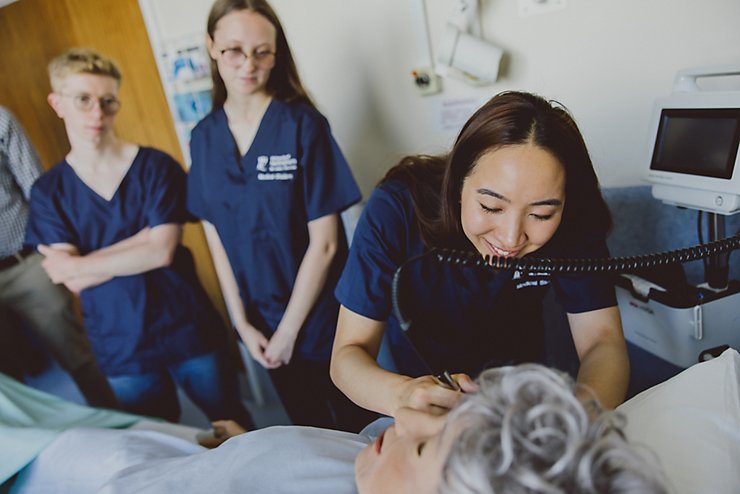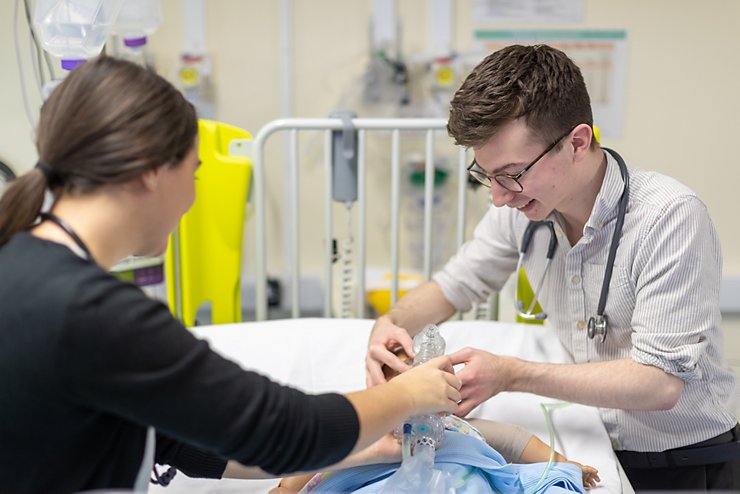
We spoke to Amber about her goals and achievements, how she’s overcome challenges, and the surprising similarities between studying medicine and competing in sport.
Why did you choose UoN?
I was definitely thinking about skiing when I chose Nottingham. I knew a couple of people who were already here, and I spoke to them about general student life.
I came to a couple of open days and I really enjoyed it - the facilities looked amazing.
I loved the campus as well, it’s so green. I’m much more of a countryside person rather than a city girl, so I definitely loved University Park Campus.

I went to my first water skiing British Championships when I was 9. Then my first European Championships when I was 13. I love it, so I always try to balance it with studying

Who have you turned to for support?
Most of my support came from my personal tutor. She was definitely my main port of call. While I was on placement in third year, she was able to get me some extra time off to compete abroad.
I also accessed support from the Wellbeing Team when I needed it. We get a lot of course work, and I had a lot of water-skiing training during competition season.
The Wellbeing Team were really good at helping me deal with the stress at those times. They were easy to access, and all my sessions were online. It was really good.


We also talked about how the mindset of sports competitions is similar to the mindset of exams – managing your nerves and dealing with pressure. Things like that really helped during my exams.

How did you find a healthy balance between studying, training and socialising?
I really focused on prioritisation. My med school finals were in March, so from January to March my absolute priority was studying and the skiing took a back seat. Now finals are over I’m back out skiing a lot more.
Something I found with studying medicine is that our timetables change every week, so it’s important to be flexible and plan ahead. I write a lot of lists and always fill my diary.
Knowing when to take a break is so important. It can get overwhelming when you have too much on your plate, so sometimes it’s important to just do something completely different, like going shopping for the day with friends.
I think it can be hard to find someone going through the exact same thing as you, but that doesn't mean that they can't talk to you and understand what you're experiencing.
The other thing I always try to think about is doing what makes me happy. If I’m getting stuck on cardiology work and feeling frustrated, I’d think to myself ‘let’s do something else, what do I enjoy?’, and focus on something different, like orthopaedics, for a while. And if there’s a time that I’m not enjoying sports then I would take a week off that.
It’s good to keep a well-rounded student experience despite having a sport.


I met a lot of lovely friends on my course who I’ve lived with for a couple of years now, which has been really good. None of them do any major sports, but they can understand what I'm going through.

Can you explain a challenging time, and how you overcame it?
At the start of fourth year, I was on placement in Derby. The level of what was required from us had stepped up.
European Championships in Austria were taking place at the same time, so I had a very intense training schedule and a very intense placement.
I had to miss a bit of my placement to train and compete, which meant making up for that time later and organising myself in advance, but we made it work.
I joined other placement groups’ teaching sessions, and we organised getting sign-off for some of my hospital skills before I went away.
I’ve always been able to get the time off from studying that I need to be able to train and compete. My tutors have all supported my sport, and I feel lucky.


My main goal is to be a sport doctor for a sports team. That’s the dream.

Do medicine and sport share any transferable skills that will help you in your career path?
Learning about the anatomy and biomechanics of movements has definitely helped me with sport.
Trauma, orthopaedics and emergency medicine were all really fast-paced – I loved that. You get to see a lot of different patients, from babies to older adults, with different kinds of injuries, including sports injuries.
I also found that sport has helped me with my medical degree. A massive part of being a doctor is obviously communicating well with patients, and in sport you have to communicate with different people of all ages. Also, things like teamwork and dealing with pressure are really transferable skills.
I think with medicine you can go different ways. I absolutely love it, but I have a lot of extracurricular activities too.
At the beginning of August I’ll start working as a graduate doctor. This clashes with the European Finals for water skiing, but I contacted the managers and they said they can give me the time off for it. I’m really grateful that support for my water skiing has carried on into employment.







